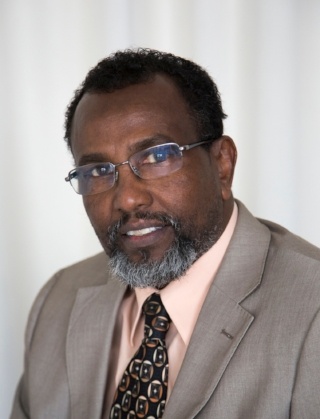Meet Our Financial Coaches: Hassan
Becoming a homeowner is a rewarding experience and a strong investment for many families. With an ambitious goal to double our impact in the Twin...
As policy makers at the State Capitol debate how to invest resources and speed our state's recovery from recession, I urge them to remember that to fix housing is to fix the economy. Investments in affordable housing will stabilize the housing market, create jobs and provide families with access to healthy and affordable homes.
However, as the budget debate is waged, I am deeply concerned that affordable housing is simply not a priority for many of our leaders. People do not seem to understand the role that the lack of affordable housing played in our current economic crisis.
If anything, the foreclosure crisis revealed a broken housing market that failed to offer what people need - a variety of housing options that are affordable. In order to recover from this economic downturn, we need to fix one of the causes of the crisis. In order to recover, we need to invest in creating more affordable places for people to live.
Many believe that the vacant houses in our neighborhoods indicate that we have an over supply of homes and no new homes are needed. Nothing could be further from the truth.
Recent projections show that we need 33,000 new affordable housing units to meet the need in our urban and suburban communities. Even if every one of the 5,000 or more vacant homes could be sold to a homeowner, we would not come close to meeting the housing need of Minnesota families.
Funds from Housing and Urban Development's Neighborhood Stabilization Program are helping to return people to those vacant homes. However, the federal investment is not the whole solution. Our state leaders must invest to increase the number of places people can afford to live.
Through Minnesota Housing, the state funds the Challenge Program. This is the primary vehicle for building and/or rehabbing affordable housing. It provides deferred loans, which can be used either for rental or ownership housing, or for acquiring and rehabilitating existing units, constructing new units or refinancing rental or home ownership housing.
Habitat for Humanity is using Challenge funds across the metro area - including Shakopee, Jordan, Hopkins and Woodbury - in addition to Minneapolis and St. Paul.
The flexibility of the Challenge Fund is a key benefit, especially with the housing market in flux. Challenge is also one of the best programs for leveraging other investment in housing. Each dollar invested through the Challenge Program in new construction leverages five to six dollars in non-state funds.
The last thing we should do is cut Challenge funding, since it actually provides a tangible solution to the lack of housing options.
Everyone benefits from a stable housing market and subsequently, a stable economy. Construction and rehab work generates jobs. To date, nearly 20 percent of jobs lost in Minnesota are from the construction industry. Maintaining the current level of funding to the Challenge Program will preserve 8,000 jobs and add $1.4 billion to the state economy.
A healthy housing market attracts business to the state - companies that depend on a range of housing options for their employees. Also, children in stable, healthy housing are physically, socially and educationally stronger.
Ultimately, a healthy housing market stabilizes families and communities, and is critical to the health and economy prosperity of our region. Home ownership for low-income families is not the cause of our economic woes or the credit crunch or the decline in the housing market, but it can help to bring back a declining market.
One example of a successful housing solution that leverages Challenge funds is Habitat's building model, which offers an affordable mortgage, partner families who are prepared to succeed and generous volunteers and donors who choose to build a future for a family.
Habitat homeowners in the metro area contribute more than $1 million annually to the local property tax base. The foreclosure rate on Habitat mortgages has not changed in 20 years and we are currently experiencing record-low delinquency rates from our homeowners.
It's quite simple. Fix housing, and we fix the economy. Please tell our lawmakers to invest in the Challenge Program and make housing a priority.
Haigh is the president of Twin Cities Habitat for Humanity.
MN Sun Newspapers
Sue Haigh - Guest Columnist & President of TCHFH
April 16, 2009
Your gift unlocks bright futures! Donate now to create, preserve, and promote affordable homeownership in the Twin Cities.

Becoming a homeowner is a rewarding experience and a strong investment for many families. With an ambitious goal to double our impact in the Twin...

Guest Blog by Scott Bolin, Freelance Writer When you are born as a middle child in a family of 12, you find a unique role helping to align the...

When Jessa’s friends and family would ask what she planned do with a degree in English, she answered that she’d love to work for a nonprofit like...